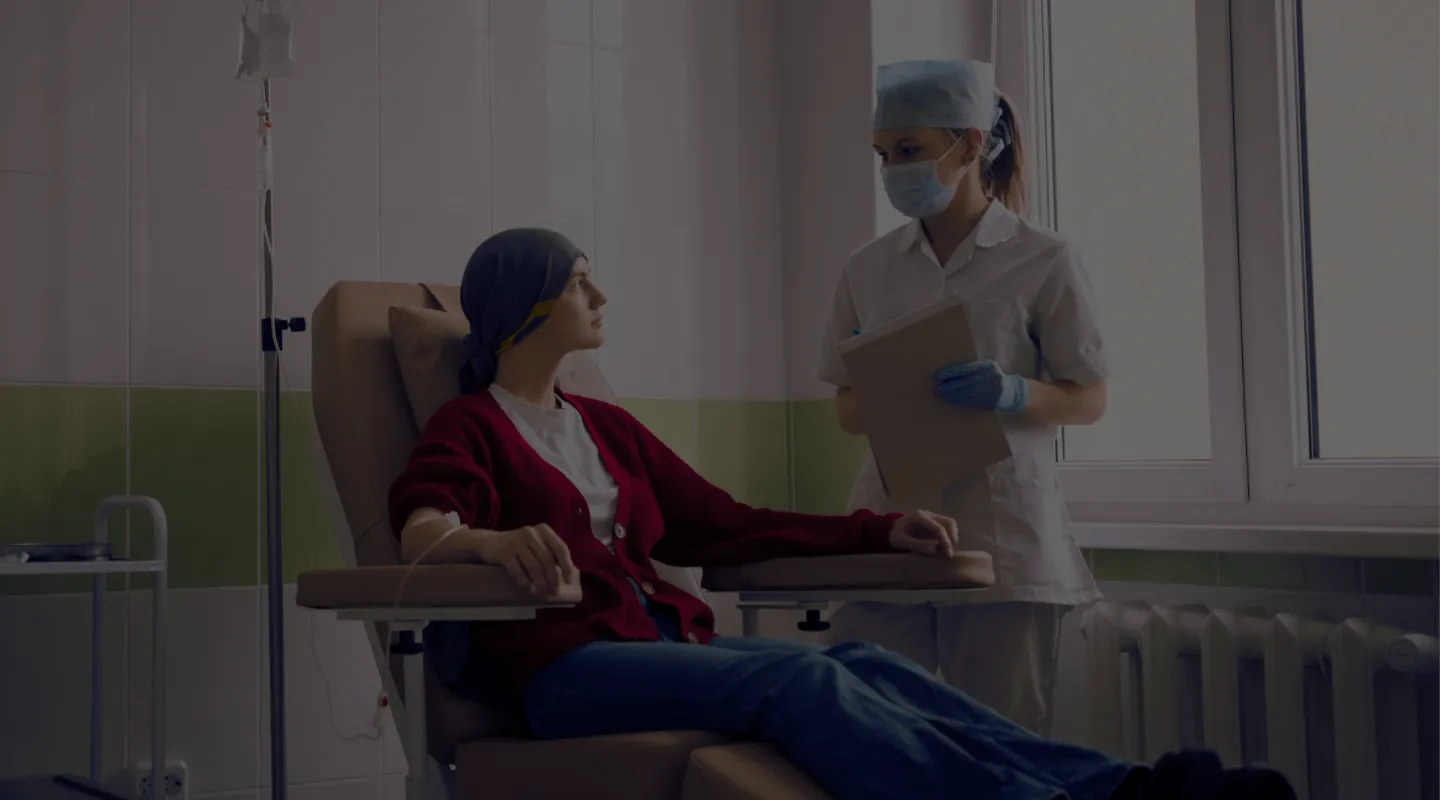
Radioiodine Therapy
Your Affordable Iodine Treatment in Tunisia
Our team supports you every step of the way: isolated hospitalization, endocrinological follow-up, and post-treatment monitoring.
1. Top Specialist Doctors
2. State-of-the-art Clinics
3. Internationally Standardized Care
4. Optimized Costs and Timelines
5. Advice and Assistance
6. Tailor-made Service
What is Radioiodine Therapy?
Understanding the mechanism of hyperthyroidism: The thyroid is an endocrine gland capable of producing, containing, and releasing thyroxine (T4) and triiodothyronine (T3), commonly called thyroid hormones. The thyroid is therefore a gland that contains large quantities of thyroid hormones in structures called follicles.
In the case of hyperthyroidism, the thyroid gland releases large amounts of thyroid hormones because it works more than it should.
Causes of Hyperthyroidism
- The most frequent cause is Graves’ disease, an autoimmune disease that stimulates the entire thyroid gland to function more than it should. In this case, the thyroid gland often increases in size, but without nodules, and is often accompanied by eye problems. This is called Graves’ ophthalmopathy.
- Toxic multinodular goiter. In this case, one or more nodules present in the thyroid gland function more than they should, producing an excess of thyroid hormones.
- Plummer’s disease. A single nodule (and not several as in goiter) is present in the thyroid gland which, by producing large amounts of thyroid hormones, causes hyperthyroidism.
- Autoimmune thyroiditis (Hashitoxicosis). Less frequent, but not uncommon.
- Finally, there are much rarer causes of hyperthyroidism such as TSH-secreting pituitary adenoma and choriocarcinomas.
Radioiodine Therapy or Treatment with Radioactive Iodine 131
- hyperthyroidism
- differentiated thyroid follicular cell tumors.
How does it work?
How is Radioiodine Therapy Performed?
What are the Aftereffects of Radioiodine Therapy?
- For the first three days after radioiodine therapy, the patient should stay as far away from their entourage as possible. In this sense, the distance must be greater than 1 meter.
- Children under 2 years of age should not be cared for by the patient, and direct contact with them should be avoided as much as possible. If possible, entrust children to relatives or friends. This special attention also applies in the case where the patient is in contact with pregnant women.
- Note that in those over 60, the risk of exposure to ionizing radiation is much lower.
- It is very important to sleep in separate rooms. If this is not possible, it is necessary to maintain a distance of at least 2 meters between the two beds.
- During the first three days, try to use personal toilets. If this is not possible, it is necessary to avoid any urine leakage outside the toilet. For men, try to urinate in a seated position. Flush the toilet several times after urinating.
- Avoid crowded places where you remain in close contact with other people for a long time, such as cinemas or theaters. Limit the use of public transport for journeys of more than two hours for one week. If possible, try to find a secluded place, away from children and young women.
Our advantages


